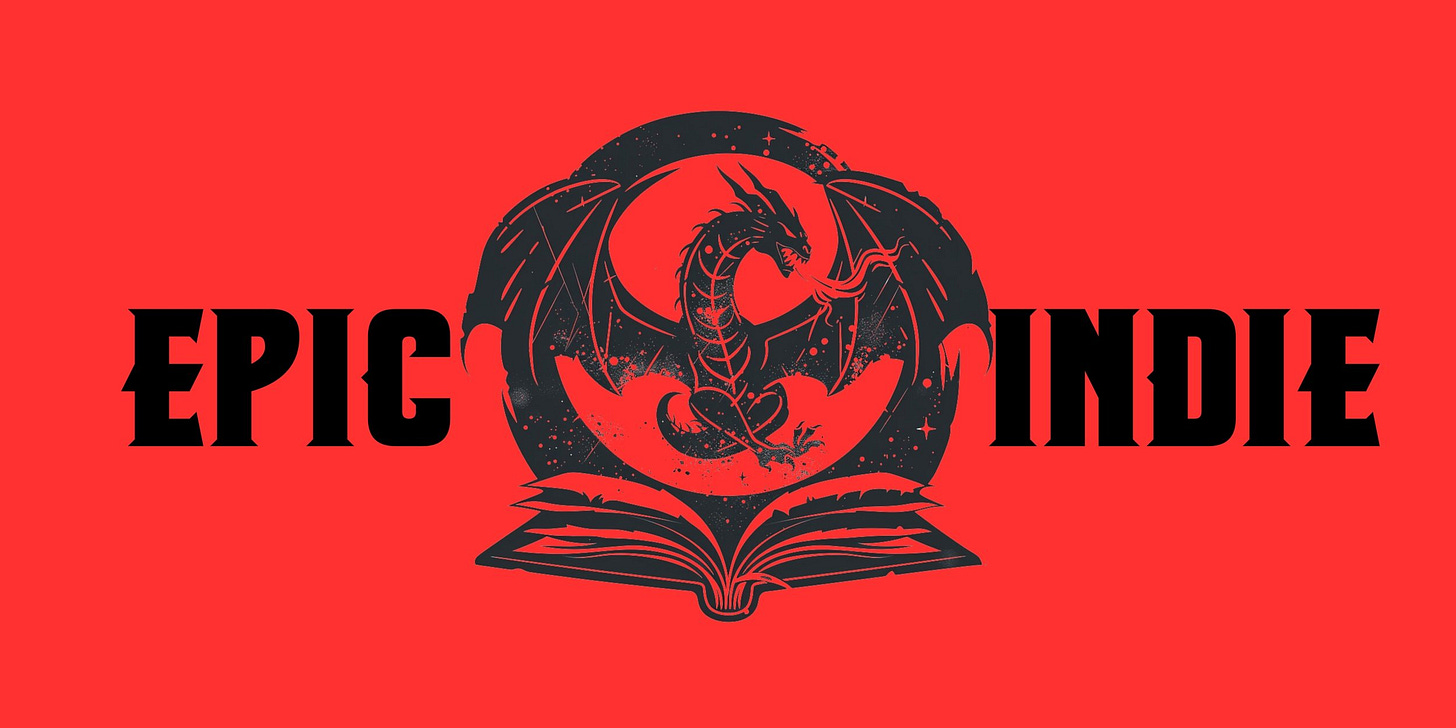Yeah, yeah I know that title will get me abuse from the usual suspects online, but you know what? I don’t care. I’ve had to bite my lip for years now (probably not very successfully…oops) on this subject but after receiving a message on X from a fellow author I just have to say something.
Anything ‘Dark’ is now considered racist apparently?
Now, I can’t be the only one looking at that and thinking to themselves that the world has gone utterly and totally insane to the point where fictional fantasy Dark Elves are considered racist and a form of white supremacy.
It’s utter nonsense and I have seen more and more of this kind of nonsense infecting the fantasy genre. Real world politics and real world issues being used to criticise and denigrate works of fiction is just stupid. The clues in the name. It’s fantasy, make believe, escapism and no doubt if said Dark Elves were the heroes of the tale rather than the antagonists they wouldn’t have a problem with it.
Like many well-intentioned causes, the initial acceptance of the principles of ‘woke’ has led to an overzealous push, ultimately going too far and resulting in discrimination against those originally perceived as the source of the problem. In this sense, the movement risks becoming the thing and creating the issues it seeks to address. This tendency to push boundaries beyond reasonable limits, never being fully satisfied, is a depressing recurring trait.
The Essence of Creativity and Fantasy
Creativity thrives on the freedom to explore, to imagine, and to express without constraint. Fantasy, as a genre, is particularly dependent on this liberty. It allows writers and artists to construct worlds unbound by the limitations of our reality, to weave narratives that challenge conventional thinking, and to delve into the depths of human imagination. These stories often serve as escapism, offering readers a refuge from the mundanity of everyday life and a gateway to worlds where the impossible becomes possible.
Self-Censorship and Fear of Reprisal
Creators today often find themselves navigating a minefield of potential offence. The fear of backlash from vocal segments of society can lead to self-censorship. Authors and artists might avoid certain themes, characters, or narratives that could be deemed controversial, even if those elements are integral to their vision. This self-imposed restraint stifles creativity, leading to homogenised content that adheres to a narrow set of acceptable norms. As in the case above it wouldn’t surprise if said editor also had problems with the terms of Dark lord or anything else about darkness (a pretty major theme for many fantasy novels and media).
Narrative Constraints
Fantasy worlds, by their nature, are meant to be diverse and complex. However, the pressure to conform to woke ideals can result in forced inclusivity that feels tokenistic, preachy and condescending rather than organic. Characters and storylines are sometimes crafted not for their narrative value, but to tick boxes and appease a vocal minority (this is sadly now very common as authors seek to cash in). This can disrupt the authenticity of the story and diminish its overall impact.
Loss of Escapism
Fantasy serves as a sanctuary from the real world, offering readers a chance to immerse themselves in adventures untainted by contemporary issues. However, the infiltration of woke ideology into these narratives can erode this sense of escapism. When stories are laden with overt social commentary, they lose their ability to transport readers to a different realm, instead tethering them to the very issues they seek to escape. A book can certainly have a message but an author must never forget that their main purpose is to entertain and not to preach. Good writing can pull off both, sadly this is rare.
Striking a Balance
Stories that reflect a multitude of experiences enrich our cultural landscape and foster empathy. However, there must be a balance. Creativity should not be hampered by the fear of offending, nor should fantasy worlds be confined by the rigid structures of our reality.
Authentic Representation
True diversity in creative works arises from authentic representation. Characters and narratives should emerge organically from the story, (not as a result of external pressures or the belief that by including you’ll get a push by the woke community and generate book sales). This ensures that representation is meaningful and enriches the narrative rather than serving as a superficial gesture.
Protecting Creative Freedom
Encouraging an environment where creators feel free to explore controversial or challenging themes is essential. Artistic expression thrives on the ability to push boundaries and provoke thought. Protecting this freedom ensures that creativity remains vibrant and innovative.
The value of escapism in fantasy should not be underestimated. These stories offer solace and inspiration, providing a mental respite from the complexities of the real world. Preserving this aspect of fantasy is crucial for maintaining its unique allure.
In the end, the goal of an author should be to foster an environment where all voices can be heard without stifling the imaginative freedom that lies at the heart of creative expression nor demanding that others conform.







You conclude, "In the end, the goal of an author should be to foster an environment where all voices can be heard without stifling the imaginative freedom that lies at the heart of creative expression nor demanding that others conform."
I disagree. the goal of an author should be to tell his or her story. Period. Real writers don't set out to write stories that will make all people feel included. Real writers just write what they want.
Thank you for defending the grand escape of fantasy. Fiction does not need to be a reflection of present day issues. Well said.